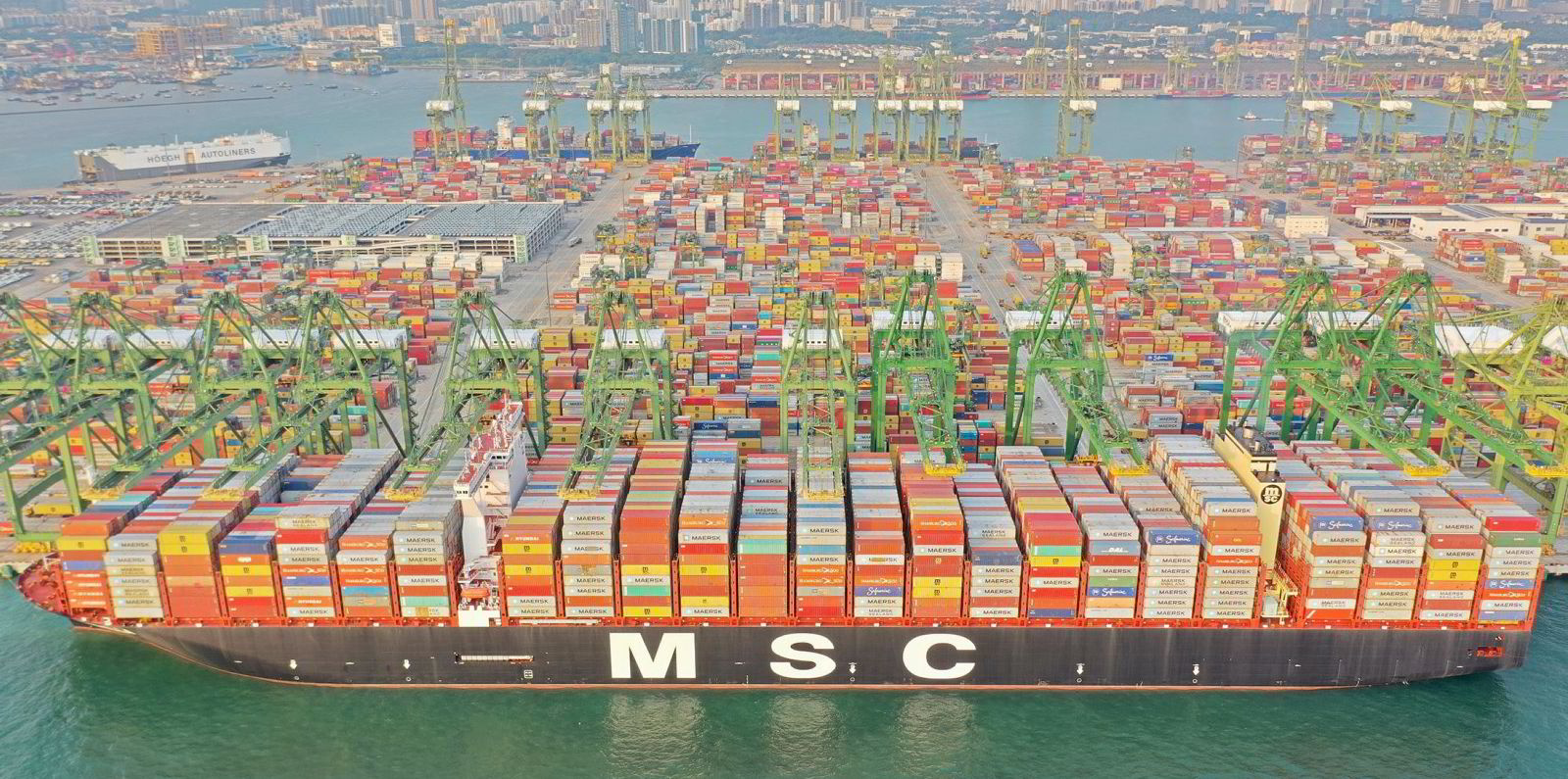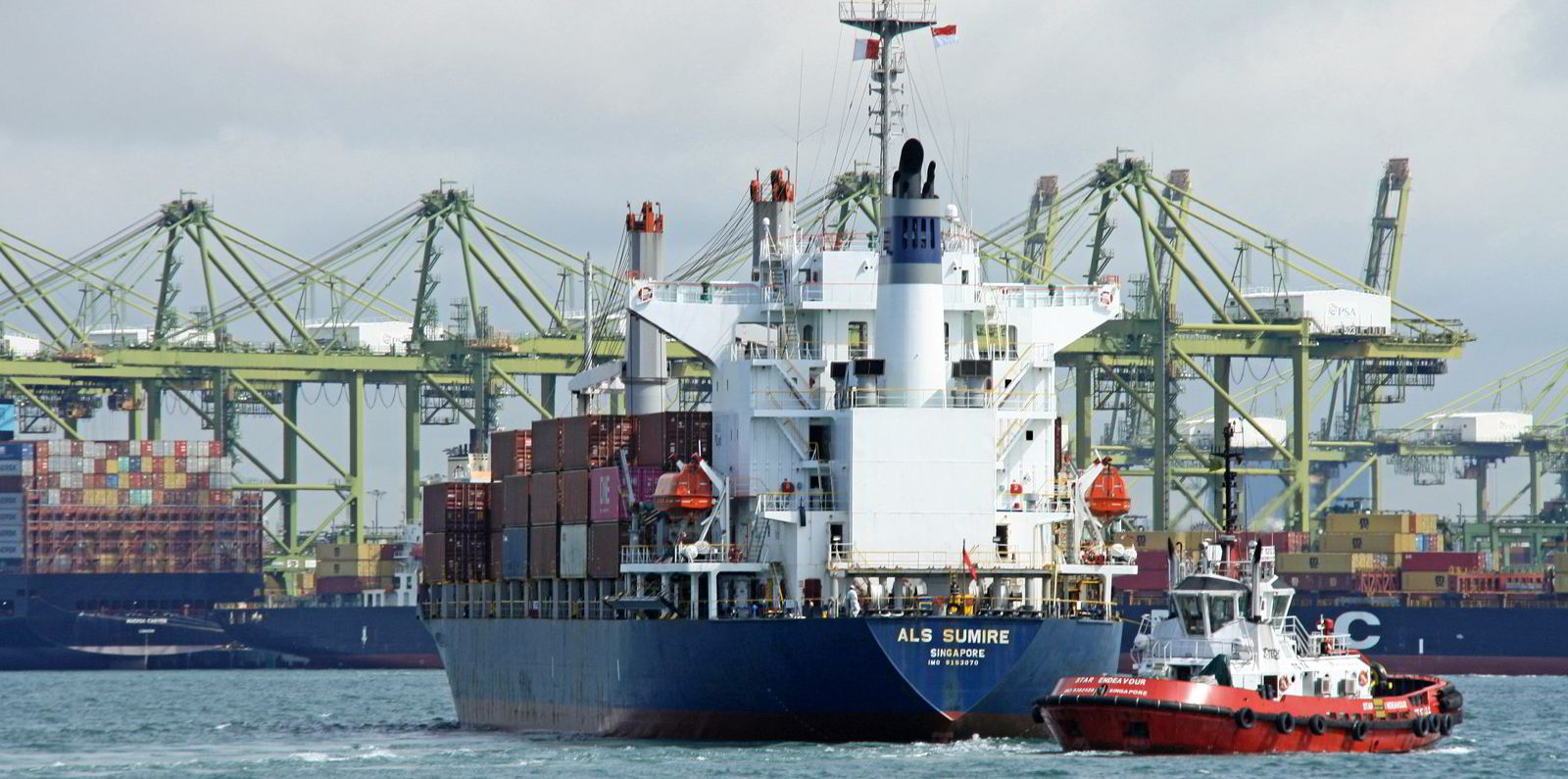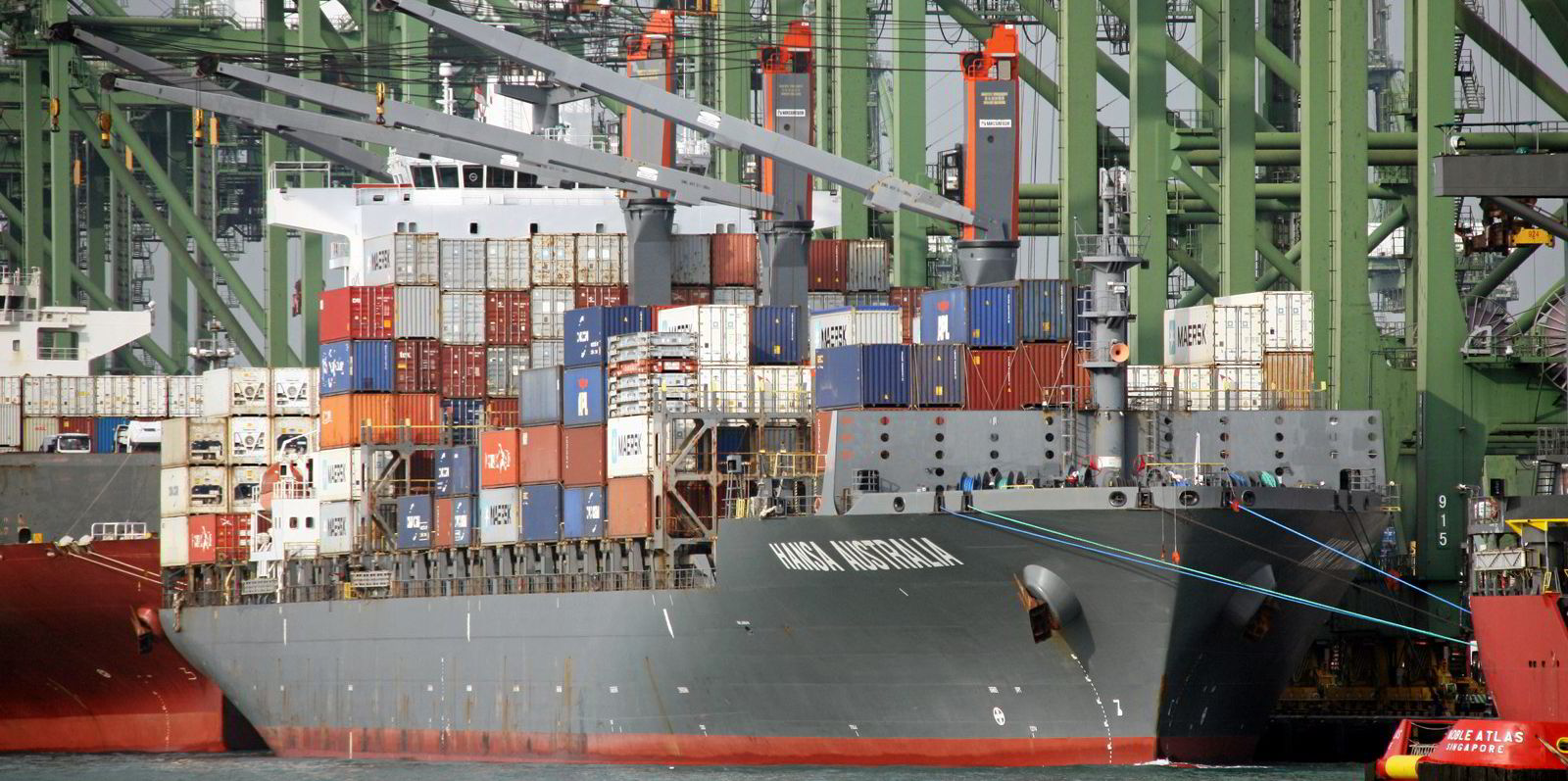Asian feeder operators have doubled their congestion surcharge just weeks after introducing it in the face of growing regional disruptions.
The Asian Feeder Discussion Group (AFDG) said delays at transshipment ports in South East Asia had deteriorated further, resulting in additional operational costs for those operators making multiple calls.
The increased emergency cost recovery surcharge is due to kick in on 1 June.
For containers travelling between Singapore and ports in Chittagong, West Asia, Haiphong and Karachi, the surcharge will double to a minimum of $200 per teu one way.
The costs of shipping a container between Singapore and Bangkok, the Philippines and Da Nang/Quinhon have increased from the $75 per teu introduced at the end of April to $150 per teu.
For voyages between Singapore and ports in Indonesia, Malaysia, Cambodia, Songkhla and Laem Chabang in Thailand and Ho Chi Minh City, the surcharge jumps to $80 per teu each way.
The AFDG said the surcharge will be applicable for all laden and empty containers, which will be charged at 50% of the laden rate, until further notice.
Members of the agreement said they had voluntarily adopted policy guidelines and reached a non-binding consensus in applying the surcharge.
Data from S&P Global Commodity Insights showed that Singapore received 999 container vessels from 1 May to 23 May this year, compared with 639 for the whole of April.
There were estimated to be 64 ships in Singapore’s port, and 24 at anchor on Tuesday this week.
Singapore has been dubbed the “new congestion hot spot”, according to container shipping industry data provider Linerlytica.
“Port congestion has returned to haunt the container markets, with Singapore becoming the latest chokepoint,” a blog post on Tuesday said.
“Berthing delays at the world’s second-largest container port of up to seven days with the total capacity waiting to berth rising to 450,000 teu in recent days.
“The severe congestion has forced some carriers to omit their planned Singapore port calls, which will exacerbate the problem at downstream ports that will have to handle additional volumes.”
Linerlytica said the delays have also resulted in vessel bunching, causing spillover congestion and schedule disruptions at downstream ports.
“The rise in port congestion has taken more than 400,000 teu of vessel capacity out of circulation in the last week alone, with a further escalation in the situation expected in the coming month.”
A PSA Singapore spokesperson recently told The Business Times newspaper: “The diversion of vessels to alternative routes such as the Cape of Good Hope has increasingly disrupted global trade patterns and vessel schedules.
“This has resulted in ports facing severe vessel bunching which, in turn, has aggravated berth waiting time.”





